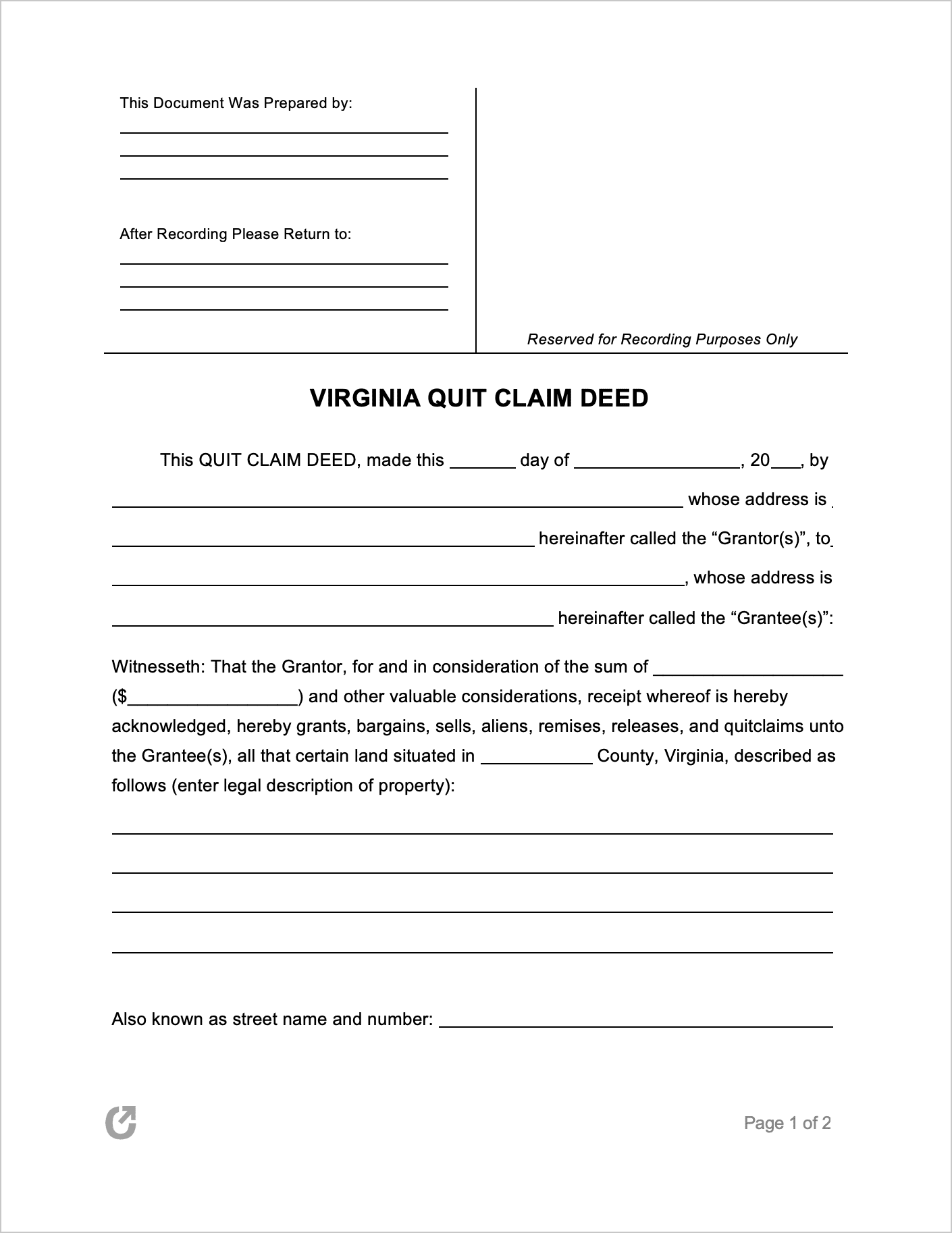Virginia Quit Claim Deed Form
The Virginia Quit Claim Deed is a relatively basic document that outlines an agreement for a Grantor (property owner) to hand over their interest in a property to one (1) or more Grantee(s) (the party that receives the property). While there are no legal restrictions against strangers using the agreement, Grantees are cautioned against entering into one unless they both personally know and trust the Grantor. The reason being that there is absolutely no buyer protection they can fall back on if they receive less interest than they were expecting—or none at all. This could happen if the Grantor either maliciously or accidentally asserts that they have interest, which in fact, they do not have. The easiest way for the Grantee to prevent this from happening is to undertake a title search.
Download: Adobe PDF, MS Word (.docx)
Laws: Title 55.1: “Property and Conveyances”
Requirements
Recording Standards: Certain standards must be met for a Virginia Quit Claim Deed to be valid for recording. The Library of Virginia has a set of recording standards that must be followed. The standards relate to such matters as the quality of the paper, the ink used, and the margins in the document. In addition to the state requirements, each county may also have their own set of standards that must be followed.
Cover Sheet (§ 17.1-227.1): Depending on the requirements of each county or city, a cover sheet may be required when the deed is presented for recording.
Signing (§ 55.1-600): In order to be recorded, the Grantor’s signature needs to be verified by either a Notary Public or two (2) witnesses.
How to File
Upon completion of the deed and the attachment of the cover sheet (if required), the deed needs to be recorded with the applicable Clerk of the Circuit Court. Fees are often required for the recording that the Grantor should be prepared to pay.
Directory: Virginia Circuit Courts
Recording type (§ 55.1-315): Virginia has a “notice recording statute” state.
